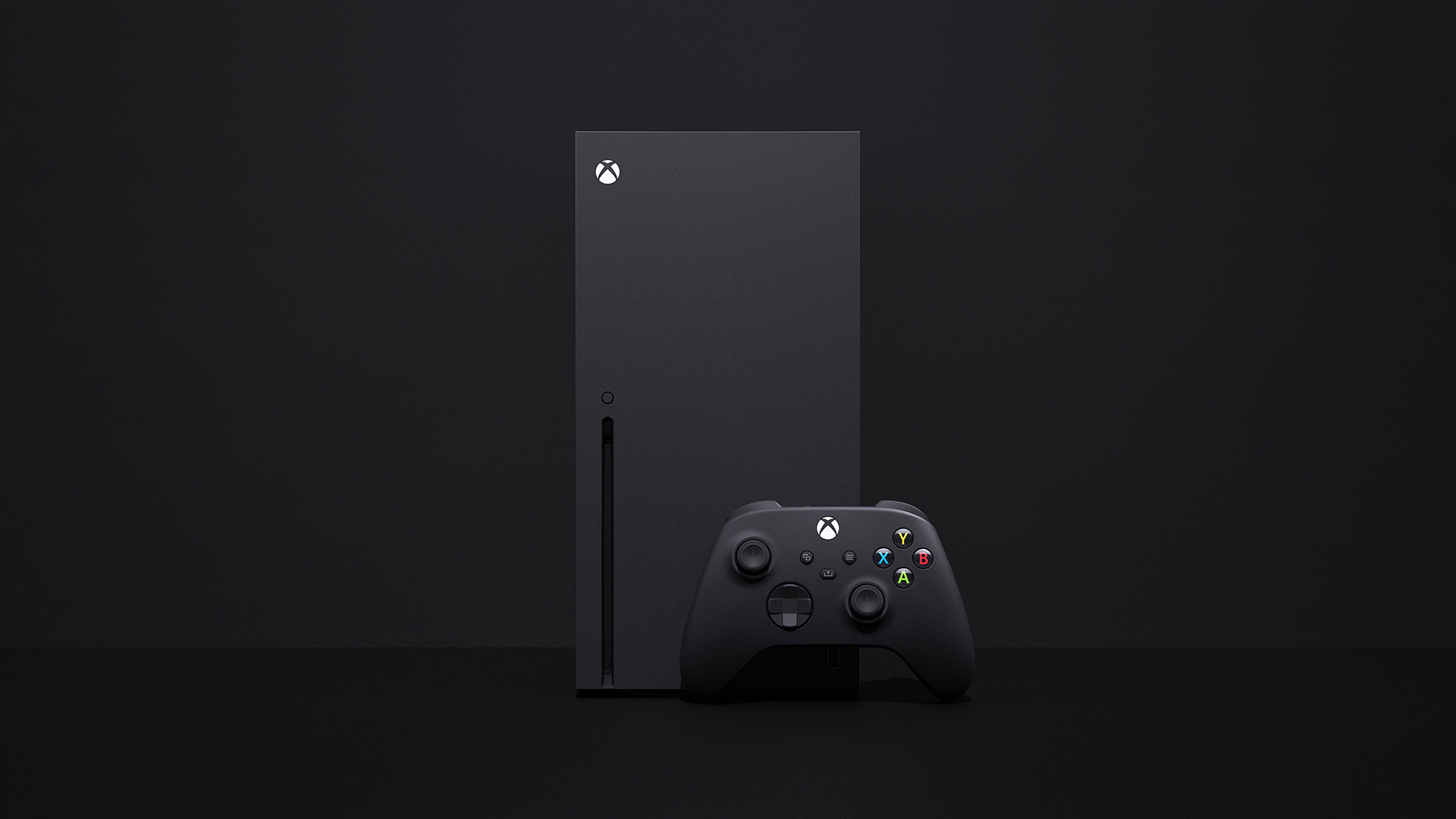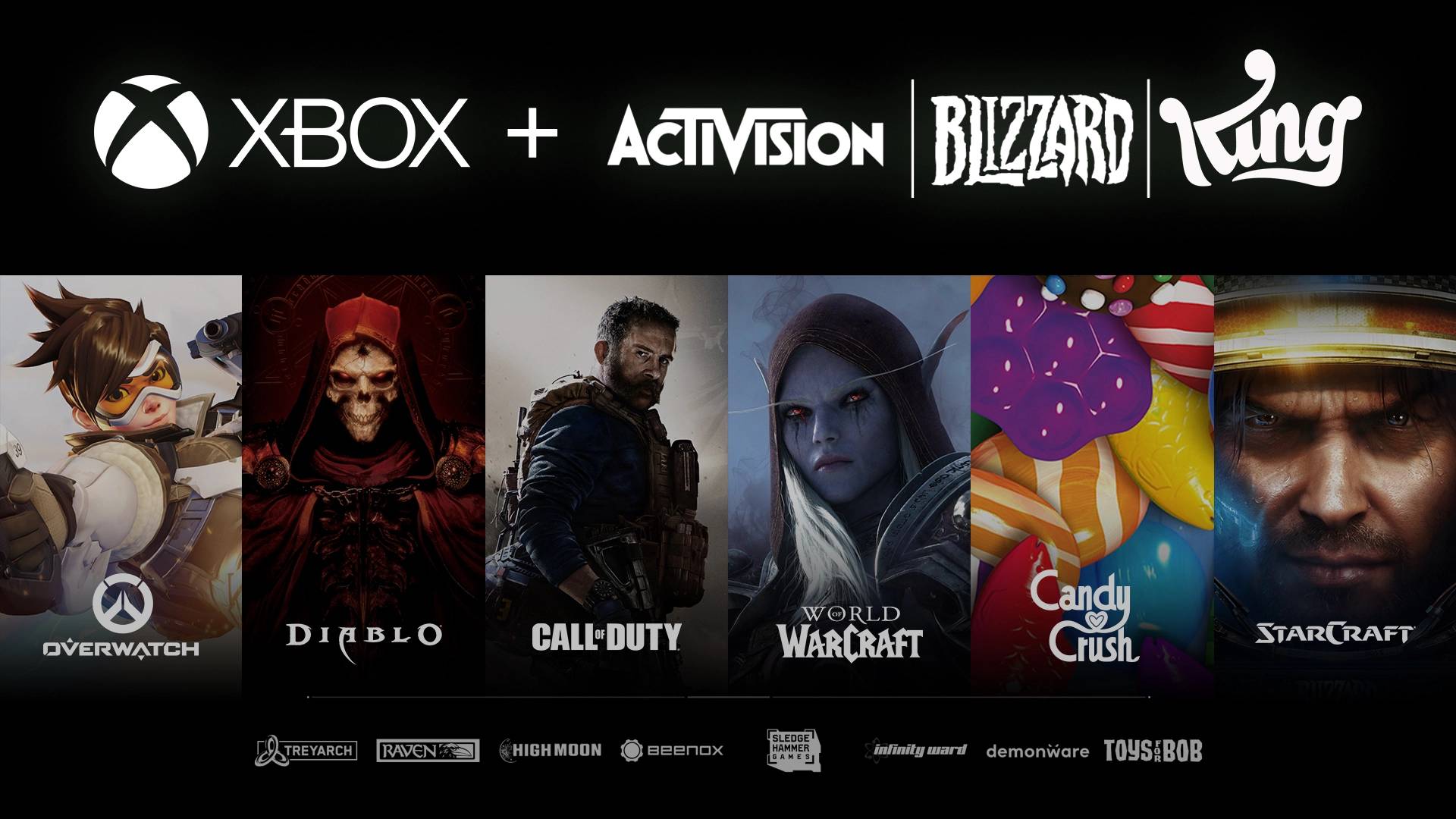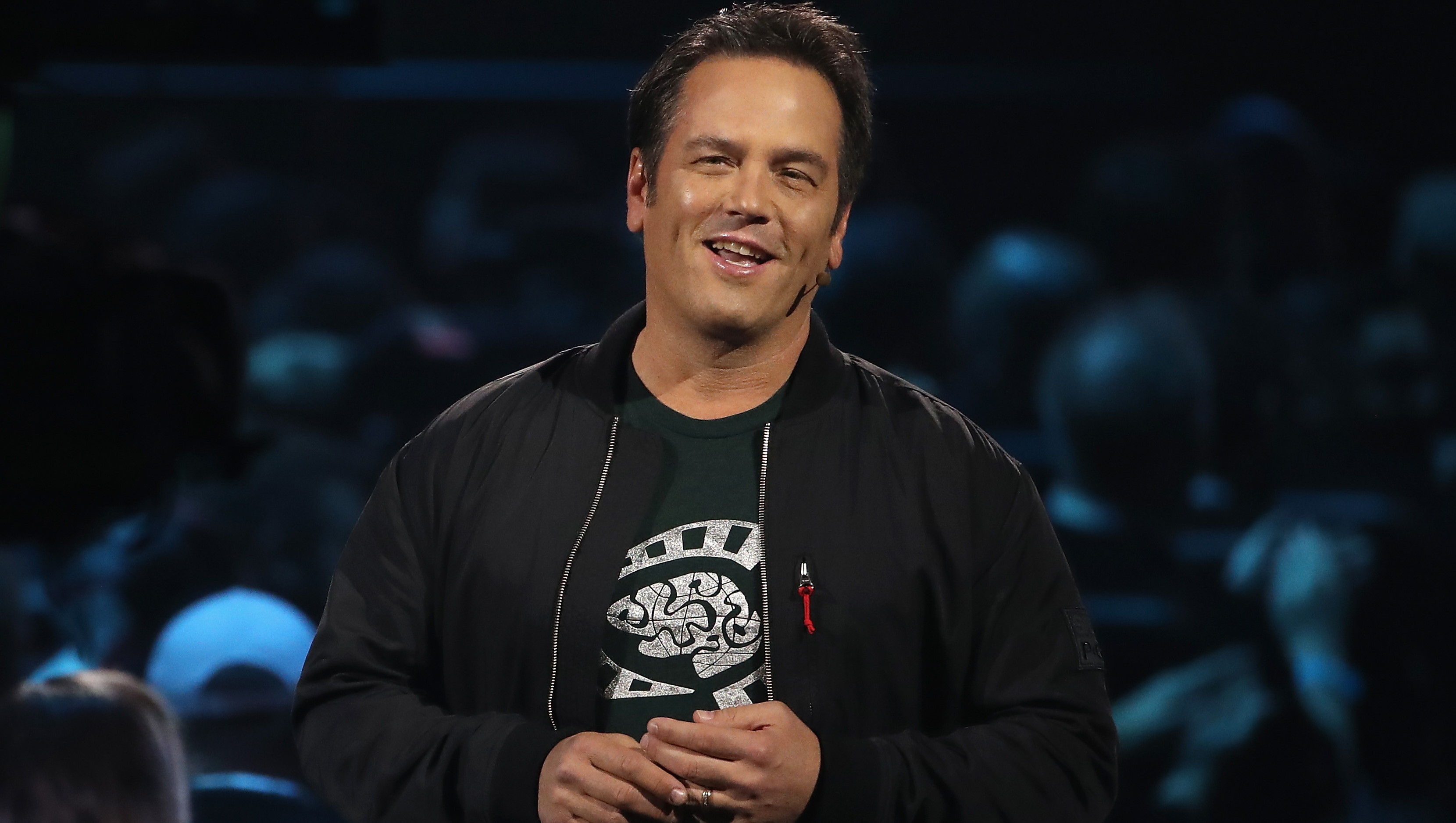Microsoft's Activision move proves the competition is no longer Sony, it's something much bigger
The rules and players have changed

Microsoft's proposed takeover of Activision Blizzard is currently the black hole that is, if not all-consuming, at least altering the reality of other news in the gaming space. The event horizon that's affecting all else. Even if a news story is unrelated, its specter looms.
It feels like something has changed. The way the industry worked, the size of all the players, the divisions, the interplay between major publishers and console manufacturers, it was all reliable. Predictable.
The conversations that were had were cyclical because as much as time went on and releases came and went, the players on the board had remained in their relative positions this side of the century.
After Tuesday, it doesn't feel like that anymore. The conversation has become way bigger. These aren't just considerations about consoles or game releases, but more about companies who are trying to shape the way we experience our world.
Like a bad Pokemon metaphor, in the space of a couple of days, it feels the scale of what we talk about in games evolved.
Yet, despite the magnitude of this paradigm shift, so much of the early consumer conversation is still mired down in the old. Nowhere else is that felt more than in the trenches of the 'console war'.
It only takes a brief trip to the comments on one of the big publisher's tweets to see the vitriol that is still slung between Xbox and PlayStation devout.
Sign up for breaking news, reviews, opinion, top tech deals, and more.
The game's changed

However, the zoom of our scope feels so much wider than before. In days of old, who was selling the most consoles was the be-all and end-all of the conversation.
It's a metric that Sony still seems to place a lot of weight in with their gaming market being entirely tied to their hardware. They've experimented with putting older releases on PC recently, but it's been a very slow adoption for PlayStation becoming wider than the console they put out.
That being said, Sony's laser focus on its PlayStation hardware felt like it was all about winning in the present, within the current set of rules.
On the other side of the coin, it's felt like Xbox has been building for the future. Game Pass has become bigger and bigger. It's a model that is not only here to stay, but will likely influence how games are released, even made.
Before this week, Microsoft felt like it was building for a future. It was going to matter at some point, but it wasn't in the here and now. It always felt prospective.
This acquisition feels like a big shift between the two approaches. That future that Microsoft was building feels like the now. The conversation feels increasingly like it's moving further and further away from who is selling the most hardware, to who has the most market share and members in their ecosystem. It feels much less defined, much harder to parse, or even recognize the players on the board.
It feels less like the competition is a battle of brands, and one more of mega-corporations
Increasingly it feels less like the competition is a battle of brands, and one more of mega-corporations. Microsoft is now taking on Tencent, Amazon, Google, and Facebook. It's not Xbox Series X/S taking on the PS5 and Nintendo Switch. It's a sentiment that Xbox boss Phil Spencer echoed in a recent interview with Washington Post. Speaking of Sony and Nintendo, he said:
"They have a long history in video games. Nintendo's not going to do anything that damages gaming in the long run because that's the business they're in. Sony is the same and I trust them. … Valve's the same way."
"When we look at the other big tech competitors for Microsoft: Google has search and Chrome, Amazon has shopping, Facebook has social, all these large-scale consumer businesses. … The discussion we’ve had internally, where those things are important to those other tech companies for how many consumers they reach, gaming can be that for us."
This isn't a big surprise either. Spencer took over the Xbox brand when it was battered after a direct conflict with Sony in the hardware space. However, since the start of his tenure, that conversation became a much friendlier one.
Starting small with well wishes to PlayStation and Nintendo at the start of E3 Press conferences, and going bigger as one of the key pushers of crossplay between all the consoles which at one point would have seemed impossible. Now, it's strange if a title doesn't offer players the ability to play with friends on other platforms.
In fact, while obviously still competitors, the fight for the space may well become one of legacy brands against the 'other'. Those that have been embedded for decades against those that might try to purchase their way into a space that then drop it after things don't work out.
There's the potential of outsider mega-corporations doing lasting damage with more volatile attitudes. It's very possible Microsoft, Nintendo, Valve, and Sony may find themselves more often on the same side than not in future struggles for the space.
They're all companies that have a strong history and large divisions in games, so have a vested interest in protecting what's already there. If the PlayStation brand fell apart tomorrow, it would be catastrophic for Sony. Yet, a company like Amazon could buy a major publisher to get a seat at the table, yet dissolve it if things don't work out as it's a small portion of their entire business.
Keeping perspective as a consumer

Now, it's important to keep in mind, none of these companies are the friend of consumers despite all the smiling messaging. There are a lot of concerns about what Microsoft's proposed purchase of Activision will mean for corporate consolidation culture.
Does this open the flood gates? Will the industry continue to look more and more oligarchic?
While in the short term, Spencer anecdotally and publicly presents as a positive force for the industry, and even if he is everything fans say, what happens in twenty years when he's gone? Microsoft is massive, and should any consumer trust they have their best long-term interest at heart?
The answer to that last one is no.
That gets at the heart of what made the 'console war' always baffling and pitiful. Leagues of internet commentators, throwing themselves on the swords of companies. Absorbing technology brands into their identity so much that tribalism kicked in against others who did the same but for a competitor.
Even to those still fighting that fight, the idea of there being an Amazon/Google/Tencent/Facebook warrior is probably a strange one. Hopefully, it provides a self-perspective as to why their fighting has seemed so weird to anyone not calling people 'Ponies' or 'Xbots' on Twitter all day long.
At this point though, it feels like any lingering 'console wars' discussion is archaic on top of being as silly as it always was. It's always been asinine, but now it feels outdated, especially as the companies it focused on will more likely find themselves on the same side of future industry shifts than not.

Patrick Dane is TechRadar Gaming's Guides Editor. With nearly a decade in the games press, he's been a consistent voice in the industry. He's written for a plethora of major publications and travelled the world doing it. He also has a deep passion for games as a service and their potential to tell evolving stories. To wit, he has over 2000 hours in Destiny 2, over 1000 in Overwatch and is now deeply into Valorant.